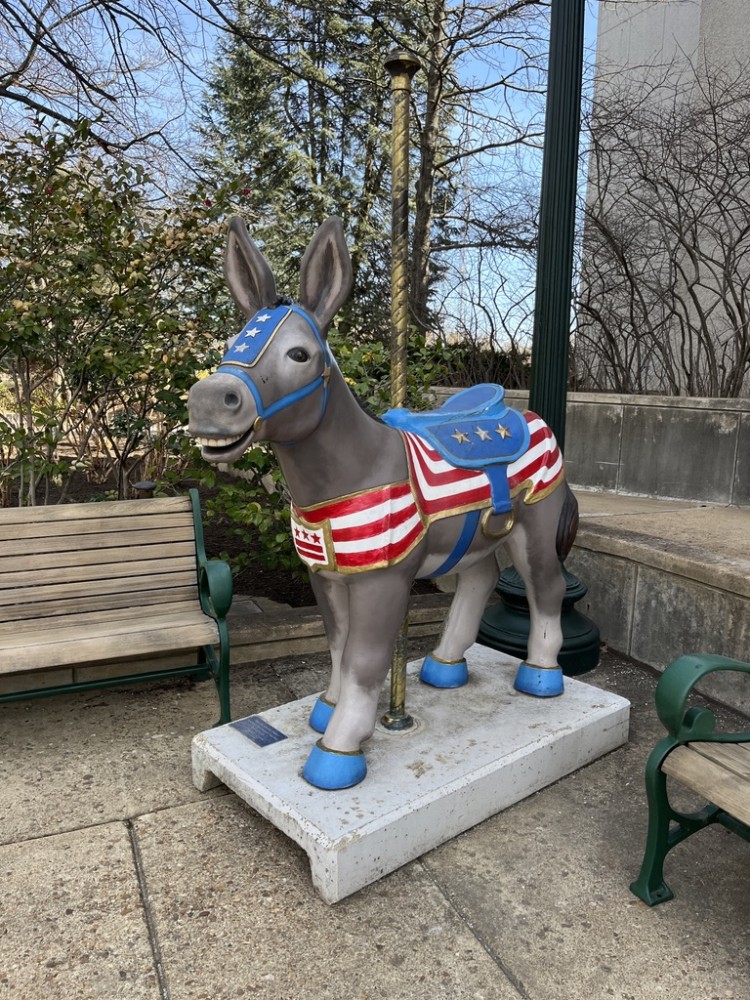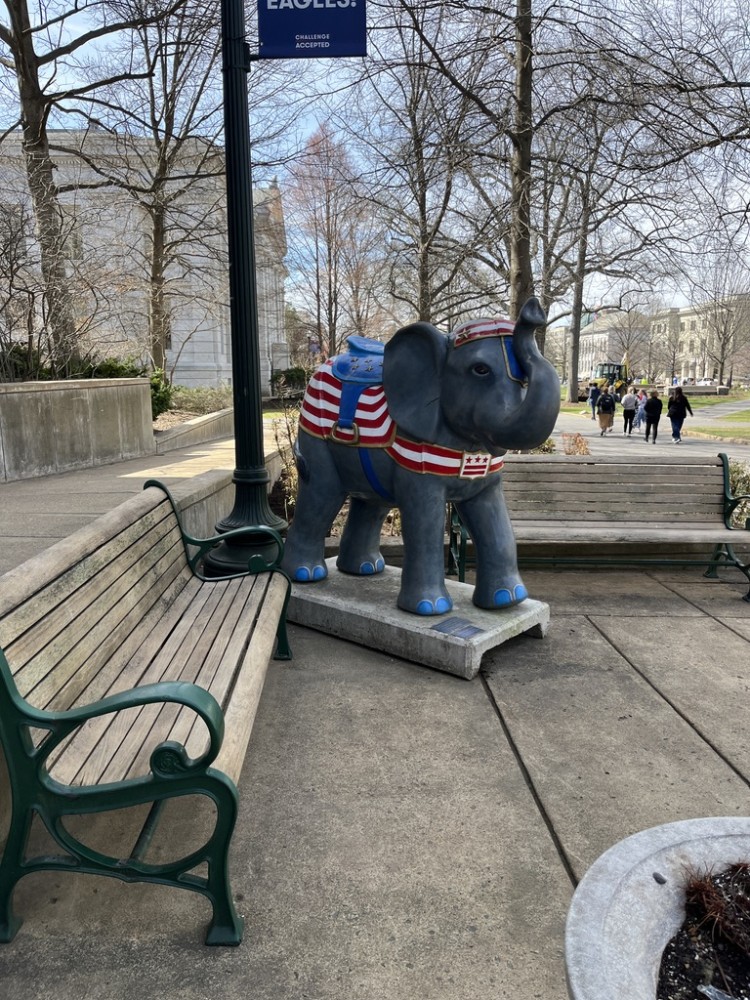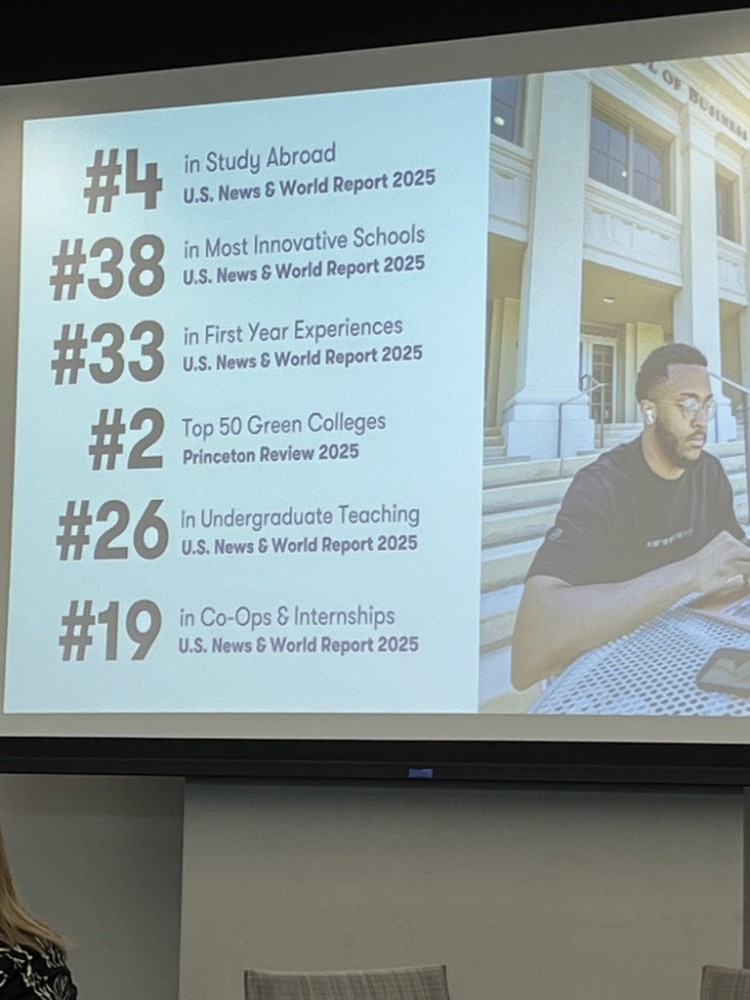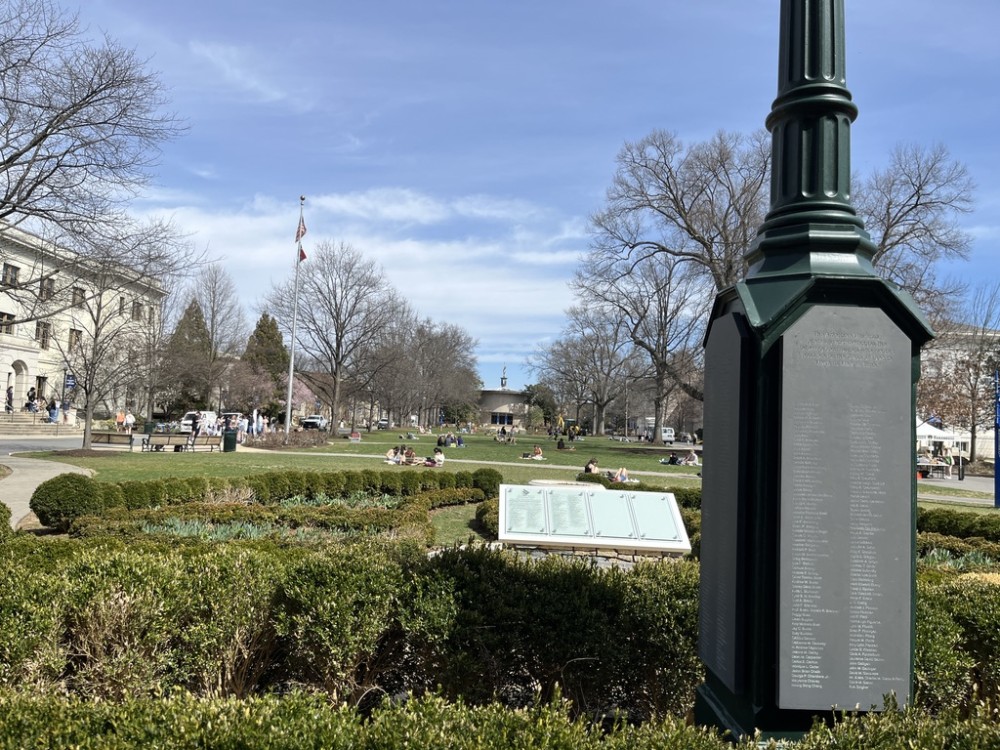American U. leans into mission, values
Fast facts for
American University
Intro and Mission
While higher education faces funding cuts and pressure from the federal government to disband DEI efforts, American University has decided to lean into their values and mission. Diversity, equity, accessibility, and inclusion is a core value; their mission includes “empower[ing] lives of purpose, service, and leadership.”



Leadership Vision
The new president, Jonathan Alger, wrote to students this summer, “There has never been a more important time for all of us to build our civic skills and become a model for what it means to be engaged productively in our democratic process and our society. . . . Throughout the coming academic year, we will work to infuse civic engagement and civil discourse into our institutional DNA.”
The speakers at American University’s first-ever counselor day, even the student tour guides and panelists, echoed this ethos. AU students are “socially conscious and active changemakers,” said Evelyn Thimba, VP undergrad enrollment management.

Academic Foundation
At its core, American University is a liberal arts college, and the deans’ playful banter made it clear that these six schools are not siloed. I’ve listed a sampling of majors for each. AU offers more than 70 majors.
The College of Arts and Sciences is the largest college at AU, ranging from the fine arts to the hard sciences. Some sample majors: American Studies, Biochemistry, Computer Science, Graphic and Visual Communication Design, Neuroscience, Musical Theatre, Statistics.
STEM students assist professors with 40% of the publications produced; 25% of the publications in the social sciences have student contributions. Community-based learning infuses courses in CAS.
Kogod School of Business has a strong reputation and is on the cutting edge of using AI. Sample majors: Business Administration with concentrations in Analytics, Finance, International Business; Business and Entertainment.
You begin with hands-on learning in business classes from Day 1. Responding to what employers say they want, AU builds professionalism, communication, and sustainability into every business degree. Kogod is the first business school to use the AI tool Perplexity on all devices.
The School of Communication benefits from AU’s D.C. location. Sample majors: Film and Media Arts, Journalism (requires a second major or a minor), Public Relations & Strategic Communication, Photography. Every course builds in hands-on experiences.
The Baker School of Education is American’s smallest school, graduating about 20 teachers a year. Secondary Education must be coupled with a major in the content area, such as Biology.
The School of International Service reflects American University’s focus on making change in the world, and is the only such school in the U.S. With a degree in International Studies, you will concentrate on a particular area, such as Environmental Sustainability & Global Health, Global Economy, or Peace, Global Security, & Conflict Resolution. Experiential learning comes in through study abroad and capstone projects.
The School of Public Affairs offers majors in Political Science, Data Sciences for Justice, Law, & Criminology, CLEG (Communication, Legal Institutions, Economics, & Government), Legal Studies. Through the Campaign Management Institute, students plan for a political campaign and learn to make media buys. There may be more lobbying in Washington, D.C., than anywhere else, and so those participating in the Public Affairs and Advocacy Institute have plenty of places to intern and learn.
Core Curriculum: Habits of Mind
The core curriculum deals with five ways of thinking or knowing. These are:
- Creative-Aesthetic Inquiry
- Cultural Inquiry
- Ethical Reasoning
- Natural-Scientific Inquiry
- Socio-Historical Inquiry
Student Thriving
With the Change Can’t Wait fundraising campaign, AU raised nearly $500 million that went toward scholarships, signature academic centers, and a Student Thriving Complex, including new and improved sports facilities to be completed in 2026. “Students will live, learn, and eat in facilities that promote student success,” said Thimba. It reflects a holistic approach to education.
Admissions
American went test optional 15 years ago, and their data tells them that student success test scores do not predict success in college. This year as before, about half of the applicants and half of the admitted students declined to provide test scores.
You’re admitted to the university, not one of its six colleges or to a particular major. That means that you’re not going to have a harder time getting into Finance in the Kogod School of Business than you would History in the College of Arts and Sciences.
Jeremy Lowe, assistant vice provost for undergraduate admissions, said that American increased its enrollment goal from 1800 to 2000 this year, and added Early Action to its application deadlines. They received an unexpectedly large number of applications from EA. The admit rate for Early Action was 60%, and the Regular Decision admit rate fell to below 30%. For 2024, the overall admit rate was 47%.
What really matters when you apply to AU? Lowe said that even though the middle 50% for fall 2024 had a weighted GPA of 3.63-4.17, the GPA is the “last thing we look at.”. (Note: according to their Common Data Set, GPA is considered “very important.”) What matters most is what shows up on your transcript. How rigorous is your curriculum? What courses have you taken? What are the grade trends showing?
In your application essay, Lowe said, “We want to hear your story in your words. It doesn’t have to be grammatically perfect. We want to learn something new that isn’t elsewhere in your application.”
AU doesn’t require the counselor recommendation, only a teacher recommendation, though they will read your counselor’s letter if it’s sent.
Sustainability
AU was the first college in the U.S. to be 100% carbon neutral. Their shuttles run on biodiesel; bins carry labels of recycle, compost, waste; all newer buildings are LEED certified. Moreover, the campus itself is an arboretum, with more than 5,000 trees labeled and daffodils popping up amid cozy, naturally landscaped nooks for studying. Curriculum across the university weaves in sustainability, often using the campus itself as a lab.
Experiential learning
The big takeaway from American University’s first counselor day? Experiential learning is woven into the life of an AU Eagle. Every major employs experiential learning—learning by doing—through research, internships, study abroad, civic engagement, and leadership opportunities. Experiential learning makes this liberal arts and sciences school very practical, and the R1 classification means some of those experiences will be high-quality research.
In my opinion. . .
American University attracts people who want to create change in the world, people who care about the environment and society. Though their sports teams don’t generate the rah-rah spirit of a Big 10 school, they have over 1,000 students participating in club sports that have their own spirit. AU also appeals to those who want to have the advantages of a city with the beauty of a green campus.